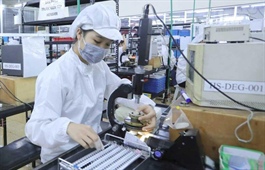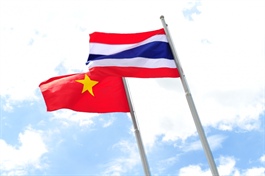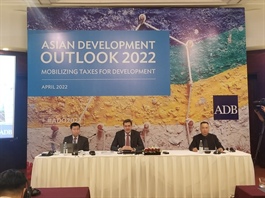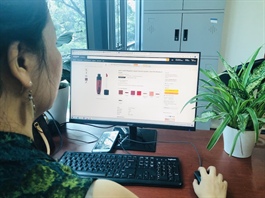FDI restructuring in the works to guarantee quality
FDI restructuring in the works to guarantee quality
Much of Vietnam’s development strategy for the next decade is linked to attracting participation from more overseas players keen to invest in the burgeoning nation. The Ministry of Planning and Investment is looking to unify criteria referring to better-quality ventures, with Ba Ria-Vung Tau already showing how they can be met efficiently.

Many past and present foreign-invested projects have been criticised for low levels of technology and human resources, along with questionable environmental standards. This has forced the Ministry of Planning and Investment (MPI) to come up with a scheme that remedies all of these issues and secures a long-term, sustainable approach to the attraction of foreign direct investment (FDI) into Vietnam.
As there is currently no available list of criteria for investment attraction that applies to all cities and provinces across the country, the MPI is working to develop a list of suitable criteria for selecting investors based on several factors.
These criteria p most of the issues that local and central authorities had previously criticised about foreign-invested projects and also aim to align with the nation’s many commitments in international trade deals and climate change combat.
The main points to tackle include the efficiency of labour and land use, used technologies and the transfer thereof, adherence to standards for the protection of the environment and national security, and connectivity and spillover effects with domestic suppliers, as well as overall socioeconomic development.
A representative of the Foreign Investment Agency under the MPI explained, “Most of these criteria have been institutionalised in provisions of the Law on Investment 2020. Some criteria will be included in specialised laws by other ministries. Along with criteria for selecting foreign-invested projects, others are also related to evaluating the effectiveness of FDI.”
The representative said that the factors for the evaluation of the effectiveness of FDI include 26 indicators, 18 of which are economic, five are social, and three are environmental. “Particularly for the environment, the indicators regard energy-saving measures; ISO standards on quality management systems; and environmental standards on wastewater, emissions, and solid waste,” he said.
A shining example
Ba Ria-Vung Tau is one of the most attractive province in the south when it comes to overseas investments in Vietnam. The province attracted 415 foreign-invested projects with the total registered investment capital of $29.7 billion from 30 countries and territories, ranking fifth in the country in the attraction of FDI in 2021. Large-scale projects mainly focus on manufacturing and seaports, accounting for 59 per cent of the total in the province.
The southern province has been following the MPI’s call and outlined several of its own standards for FDI selection and efficiency sustainably. Under its action plan to enhance the quality and efficiency of FDI by 2030, it began rejecting polluting projects and established strict criteria for labour-intensive ones.
Following this, the province has already rejected several registered projects in the textile and footwear sectors as applications included vast anticipated labour requirements that were deemed risky.
In addition to the mandatory criteria prescribed by current law regarding deposits and technology, the province also sets limits on the use of unskilled labour in Vung Tau city and Ba Ria city of no more than 300 people per project. For projects requiring more than 500 labourers, the province also enacted that foreign investors must build housing for their workers.
Nguyen Anh Triet, director of Ba Ria-Vung Tau Industrial Zones Management Authority, said, “We have demonstrated strong determination in reforming the policies on FDI. As a result, the quality and efficiency of projects have increased markedly, contributing to the socioeconomic development of the province and creating jobs and stable income for thousands of local workers.”
Triet also referred to the rejected projects that did not meet Ba Ria-Vung Tau’s requirements, citing even those with an investment volume of up to $1 billion that were turned down due to environmental concerns.
Le Ngoc Khanh, Deputy Chairman of Ba Ria-Vung Tau People’s Committee previously told local media that the province has also approached companies from more developed markets, such as South Korea and Japan. “The province is always willing to welcome foreign investors and projects that match local development criteria, including eco-friendly technologies,” Khanh said.
Both Japan and South Korea led 2021 in terms of the number of foreign-invested projects in Ba-Ria Vung Tau, registering nearly $10 billion. For instance, Posco Yamato Vina JSC – a joint venture between South Korean steelmaker Posco, Yamato Kogyo Co., Ltd., and Siam Yamato Steel Co., Ltd. – operates a steel factory in the province at the total investment capital of $1.12 billion. However, the project is among those criticised as Posco Yamato Vina has yet to register any profits since its inauguration in 2015. The accumulated losses of the company amount to more than $387 million.
However, in 2021, according to its business report, it earned $31.4 million for the full year thanks to the high demand for steel.
Setting high standards
One point of criticism the MPI had was on the land-use efficiency of many foreign-invested projects, which remained insufficient. Thus, the MPI aims to reduce the number of small-scale projects that cover large areas of land, an endeavour that had already been outlined in the Law on Investment 2020 and Decree No.31/2021/ND-CP guiding the implementation of this law.
Similarly, the MPI wants to lower the pressure on some localities that have seen a high labour concentration, causing several issues with social infrastructure and security. Localities with relatively modern infrastructure and high-quality human resources should give priority to high-tech projects with a low ratio of labour per hectare, while all cities and provinces should ensure factors like technology usage, environmental protection, and energy efficiency.
When it comes to technology, most criteria circle around the high-tech application in foreign-invested projects, which will be measured by the number of high-tech products, the enterprise’s total annual net revenue, expenditure on research and development, and the ratio of employees with tertiary degrees.
The ministry also wants to favour projects that strengthen links between overseas manufacturers and domestic suppliers and create conditions for the latter to grow and improve their added value to national socioeconomic development. This criterion was institutionalised in Decision No.29/2021/QD-TTg enacted last year on special investment incentives.
The MPI also emphasises the goal of sustainable development and environmental protection, not just to save energy and thus secure national energy security, but also to reduce emissions in line with regional and world standards and achieve Vietnam’s new targets.
Besides eliminating the use of outdated tech and mitigating emissions of greenhouse gases – reaching no more than 560 million tonnes of CO2 by 2030 – the regulations in the Law on Investment and Decree 31 also promulgate specific targets for the consumption of energy and water and wastewater management.
By the end of 2021, Vietnam had attracted $408 billion of registered FDI, ranking 18th in the world and second in ASEAN after Indonesia. According to the MPI, in the first three months of this year, Vietnam licensed 322 new foreign-invested projects, capitalised at $3.21 billion and up 37.6 per cent in the number of projects, but down 55.5 per cent in value on-year.























